I know a thing or two about how to starve bad gut bacteria. I just haven’t had to do it for a long time.
The reason? I healed my gut, and there is no reason to starve gut bacteria or to engage in intense diet protocols unless you know for a fact that there is a problem.
The good news? You, too, can heal!
Bad Bacteria vs Good Bacteria
Let’s start off by understanding what these two ideas mean; “bad” vs “good” bacteria.
If you’re reading this right now there is a chance you have (or suspect you have) small intestinal bacterial overgrowth (SIBO).
The conversation surrounding SIBO is always one which includes something along the lines of, “There is too much bad bacteria in the small intestine, causing all my issues.”
Does this sound familiar?
But despite the arguments over “good” vs “bad” bacteria, it’s not really either.
It’s simply that more bacteria is in the small intestine than should be and thus causes everything from digestive symptoms like gas, bloating and diarrhea to gut-related symptoms like brain fog, headaches, skin issues, respiratory symptoms, a compromised immune system, nutritional deficiencies, and more.
What we want is more bacteria in the large intestine; not small, for overall health.
If you want a simple yet helpful understanding of the digestive tract, read THIS.
Do You Need to Starve Gut Bacteria?
Maybe and maybe not; I don’t know.
You need to not consult with Dr. Google, but instead, a real doctor who will perform all necessary medical tests.
Once you have an accurate diagnosis, only then can you determine if you need to starve gut bacteria in order to achieve better gut health.
If it’s determined that you do, in fact, need to starve gut bacteria, the next step is determining how to starve it because guess what?
All gut bacteria starvation does not look the same.
There are five main approaches you could take to help starve gut bacteria: a general anti-inflammatory diet, Paleo (maybe even AIP), GAPS Diet, SCD, and Low-FODMAP.
These five diet protocols, while similar, are not the same.
Each one allows things the other does not, and various conditions require bits and pieces of them, all of them or none of them.
Today I am mostly addressing how to starve gut bacteria if you have SIBO because that is what I am hyper-focused on currently.
How to Starve Bad Gut Bacteria
Click HERE to save this article for later.
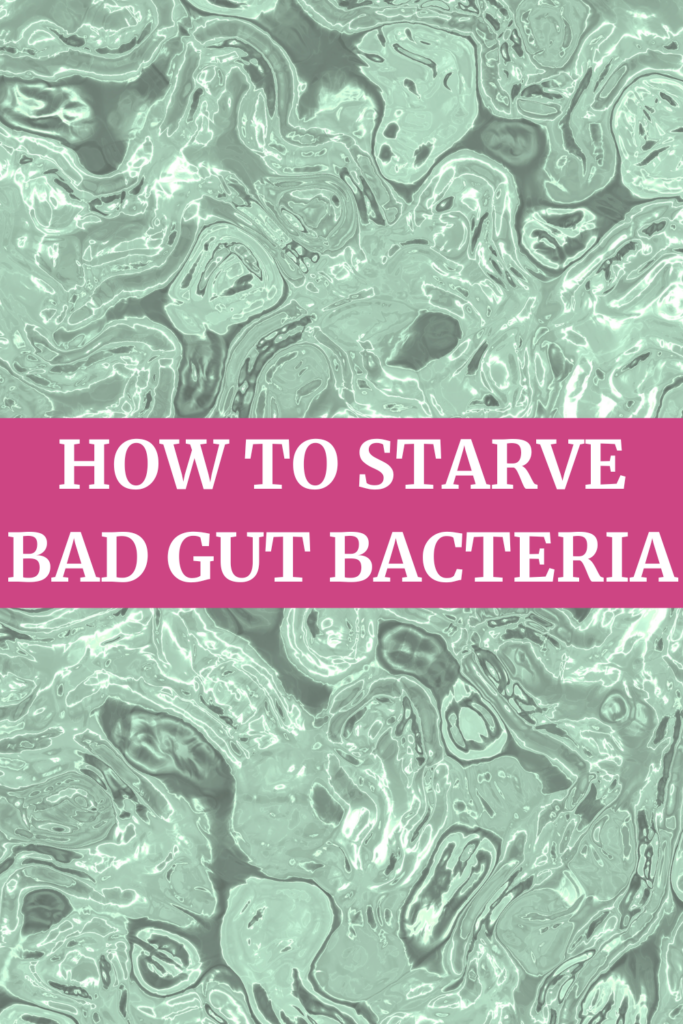
General Anti-Inflammatory Diet
In general, an anti-inflammatory diet is the best way to approach any “bad” gut bacteria and positive changes for the gut lining.
The inflammatory diet is a standard western diet that’s made of things like white bread, low dietary fiber, sugar and artificial sweeteners, and processed foods galore causing an unhealthy gut in the first place.
Foods to Exclude on an Anti-Inflammatory Diet
- corn
- dairy
- processed foods (any and all)
- sugar
- fried foods
- refined grains and gluten
- alcohol
*Note: these are the main ones, but depending on your own condition and diagnosis, there might be others as well (i.e. soy, various meats, and eggs)
Following a general anti-inflammatory diet can be a good place to start to see overall positive health benefits, allowing only “good gut bacteria” to thrive (in the places where is should be thriving).
However, if you have a confirmed diagnosis (such as: Ulcerative Colitis, Crohn’s Disease (or any other autoimmune disorders), SIBO, a Candida overgrowth, H. Pylori, etc.), you might need to go a step further (at least for a period of time).
Low-FODMAPs
Click HERE to learn about FODMAPs.
The Low-FODMAP Diet has been the gold standard for SIBO and getting rid of unwanted bacteria in the small intestine.
Avoiding FODMAP-foods is used to alleviate SIBO symptoms because it takes away the food source for gut bacteria to ferment.
When bacteria ferments in the small intestine, you’ll know it because you’ll feel things like: abdominal pain, gas, bloating and experience all the irritable bowel syndrome symptoms.
I have discussed at length FODMAPs before, so refer to the posts I’ve linked to above for more information.
SCD [Specific Carbohydrate Diet]
I haven’t written much about SCD, at least not like I have with the GAPS Diet
(For the record, THIS is why, in the end, I only sprinkled in the GAPS Diet. In the beginning of my journey, I was not yet diagnosed with SIBO, and because SIBO was my main issue, some of the things I was doing on GAPS were not behooving my healing progress.)
So back to SCD.
SCD stands for Specific Carbohydrate Diet. It’s based off the book Breaking the Vicious Cycle: Intestinal Health Through Diet by Elaine Gottschall (a book I’ve had in my library for years now, which Elaine made popular, but did not found the concept for – a pediatrician did).
SCD limits complex carbs (disaccharides and polysaccharides), lactose, sucrose and other man-made ingredients.
The allowed carbohydrates are monosaccharides and have a single molecule structure that allow them to be easily absorbed by the intestine wall. Complex carbohydrates which are disaccharides (double molecules) and polysaccharides (chain molecules) are not allowed. Complex carbohydrates that are not easily digested feed harmful bacteria in our intestines causing them to overgrow producing by products and inflaming the intestine wall. The diet works by starving out these bacteria and restoring the balance of bacteria in our gut. (Source)
- Created by Dr. Sidney Haas, but popularized by Elaine Gottschall
- SCD is, “based on the theory that by eliminating most carbs (primarily grains, starches, dairy, and sugars) and allowing only specific carbs that require minimal digestion, it can reduce inflammation and make eating enjoyable for people with gastrointestinal (GI) disorders.”
- Avoid all grains, beans, legumes, sugar, most dairy, starchy vegetables and non-grain flours, fermented beverages, and even chocolate/cacao
GAPS [Gut and Psychology Syndrome]
The GAPS Diet was one of the very first diets I ever did to try to heal my gut and achieve healthy gut bacteria.
It was a good idea at the time because it lead me to my forever path for healing my gut.
- Stands for Gut and Psychology Syndrome
- Created by Dr. Natasha Campbell-McBride
- You move through healing “stages” (6 of them in the beginning, each stage might last only a day or two, depending on your circumstances) and end at the full GAPS Diet for up to 2 years
- Inspired by the SCD (also part of this post)
- The main book is better and more comprehensive than the SCD one, in my opinion
- Avoid processed foods, refined oils and sugars, grains, gluten, some lentils, soy
- Still allowed to have things like nuts, peanuts, some sweeteners, some dairy (in fact it’s encouraged)
- A lot of emphasis on bone broth and fermented foods
Proponents of GAPS say that it least to a healthy gut microbiome, and therefore, the gut bacteria would live and thrive where it’s supposed to within the digestive system.
While I do think the GAPS Diet has a time and place, I would be remiss if I didn’t tell you that there are many GAPS-approved foods that are high-FODMAP (avocado, garlic, apples, etc.).
The GAPS diet allows things like some beans and lentils, which I no longer believe help to fully starve gut bacteria.
However, the heavy push on bone broth for gut healing is the major GAPS Diet principle that I’ll continue to use.
Paleo (maybe AIP)
Finally, for optimal digestive health, many will choose a Paleo (maybe even AIP) diet.
- Stands for Autoimmune Protocol
- Some call it Autoimmune Paleo because it’s essentially the Paleo diet on steroids
- This book, by Sarah Ballantyne PhD is, by far, the best and most comprehensive of the 3. Seriously….killer!
- Originally developed by Loren Cordain PhD, popularized by Sarah Ballantyne PhD
- Avoid processed foods, refined oils and sugars, grains and pseudo-grains (like quinoa), gluten, legumes, soy, dairy, nightshades, non-nutritive sweeteners (like Stevia), eggs, nuts, seeds, alcohol
- 30-day elimination period, and then you begin reintroducing things
If you’re trying to starve gut bacteria and you have been diagnosed with an autoimmune condition, then the AIP Diet might be what you’re seeking.
Starving Gut Bacteria vs. Starving
Now that I’ve laid out various diet to help you achieve starving bacteria, it’s very important that we discuss the difference between starving gut bacteria and plain, old starving.
Fact: Starving gut bacteria is different than starving, and I can tell you with 100% certainty that I know the difference.
One begins with hobby restriction, the other forced restriction.
I have lived through not eating enough, and consequently, now pay dearly for destroying my hormones with those choices.
And even though I’d love to tell you that starving gut bacteria doesn’t involve diet, I simply cannot.
But even still, the two forms of starvation are different.
Starving Gut Bacteria
Even if, and even when, trying to starve gut bacteria, you are still eating.
No positive gut microbiota changes occur when there is no food.
NO FOOD does not equal HEALTHY DIET.
This is the mindset for when you’re truly trying to starve the bacteria:
- Many calories (in fact, probably more than when I’m not trying to starve the bacteria)
- Restriction (of certain things) to heal
- Light at the end of the tunnel (once the bacteria have been starved, you should be able to resume a more “normal” eating lifestyle)
- The body is healing
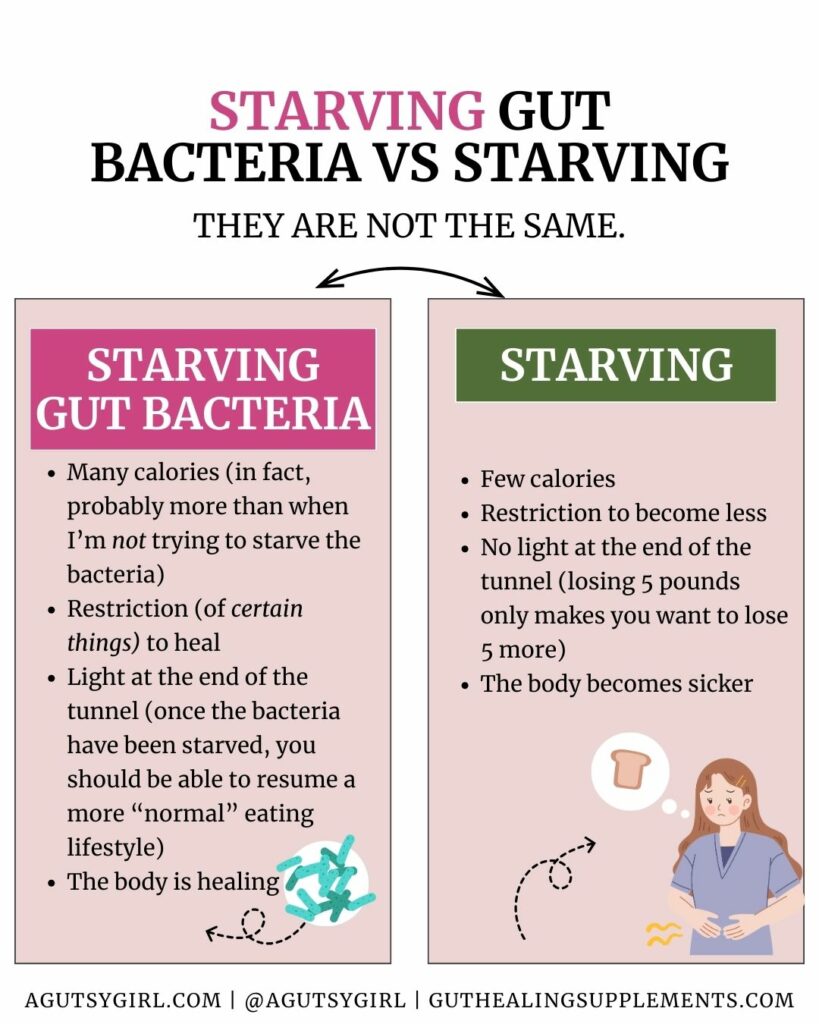
vs. to Starve
And if you’re only seeing these diets as weight loss diets, then this is just simply starving your body:
- Few calories
- Restriction to become less
- No light at the end of the tunnel (losing 5 pounds only makes you want to lose 5 more)
- The body becomes sicker
All of that said, there is one way starving gut bacteria and starving are alike: Neither one is any kind of picnic. They are both hard routes.
However, I’m confident that if you’re truly desiring optimal health and healing your gut, then you’ll choose the hard route conducive for that.
If you choose the starving route, things will only get worse.
How Long to Starve Gut Bacteria?
Everyone has a different idea about how long you need in order to effective starve gut bacteria.
It will come down to the severity of gut issues and the progress you make once you begin.
According to the Monash app, people generally need to avoid high-FODMAP foods for 2-6 weeks.
It is generally accepted that many symptoms begin to disappear within 2-3 weeks of following SCD, however Elaine mentions that one should stick to it for even a year after symptoms disappear.
Note: One should not starve gut bacteria any longer than is medically necessary. In the long run, starving gut bacteria damages the microbiome. And a strong microbiome is your best chance at fighting seemingly everything.
Stubborn persistence will pay off.
I already said it, but I’ll say it again, there are people who make excuses for feeling horrible and then there are people who do something about it.
In all areas of my life, I do believe I am the latter.
Lifestyle Changes
Last, but certainly not least, you must know that even if you are following the perfect diet for your condition to balance gut bacteria, you are not likely to see massive positive changes without also following the lifestyle elements.
Here are some of the lifestyle pieces you might be overlooking:
- Incorrect use (or no use) of supplements – probiotic supplements, digestive enzymes, etc.
- No regular exercise (or too much physical activity)
- Staying in a state of chronic stress
- Overuse of antibiotics (the use of antibiotics when you don’t need them, or using them as your only crutch)
- Not getting enough sleep
- HOW vs. what you’re eating
Beneficial bacteria plays a pivotal role in everything from inflammatory bowel disease control to mental health (the gut-brain axis is real!) and immune function.
And while it’s not easy to achieve the delicate balance — IT CAN BE DONE.
By the way…..
Click HERE for all of them.
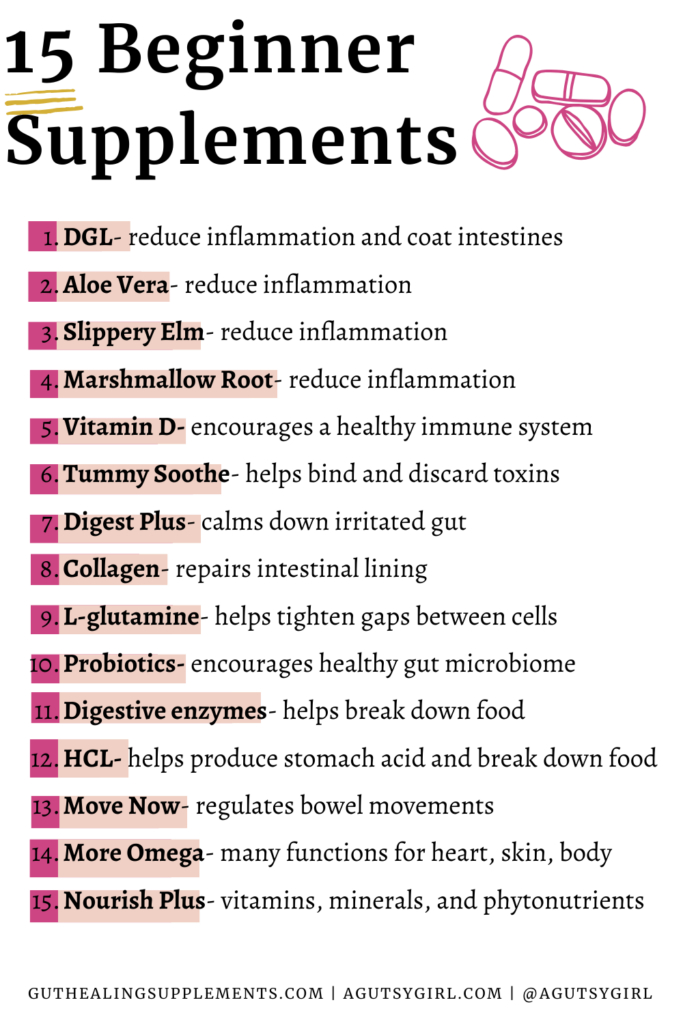
If you liked this post, you might also enjoy:
Xox,
SKH
🤰 bloating be gone! weight loss through optimal gut health for women
💃ʜᴇᴀʟ ʏᴏᴜʀ ɢᴜᴛ. ʜᴇᴀʟ ʏᴏᴜʀ ʟɪfe.
🫶🏻 founder gutbyome.com


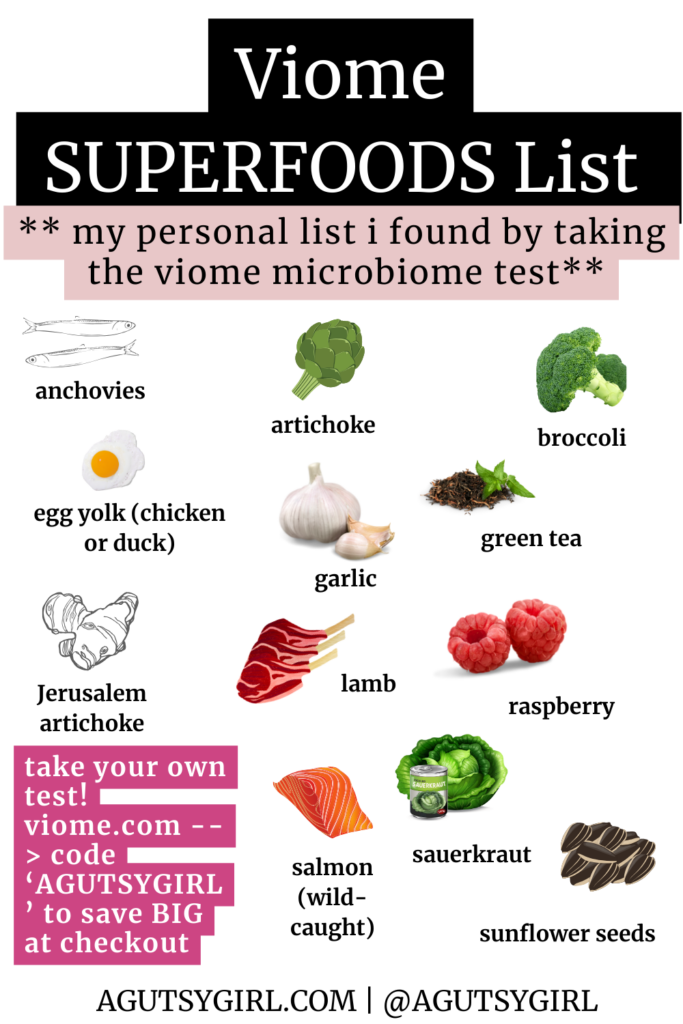
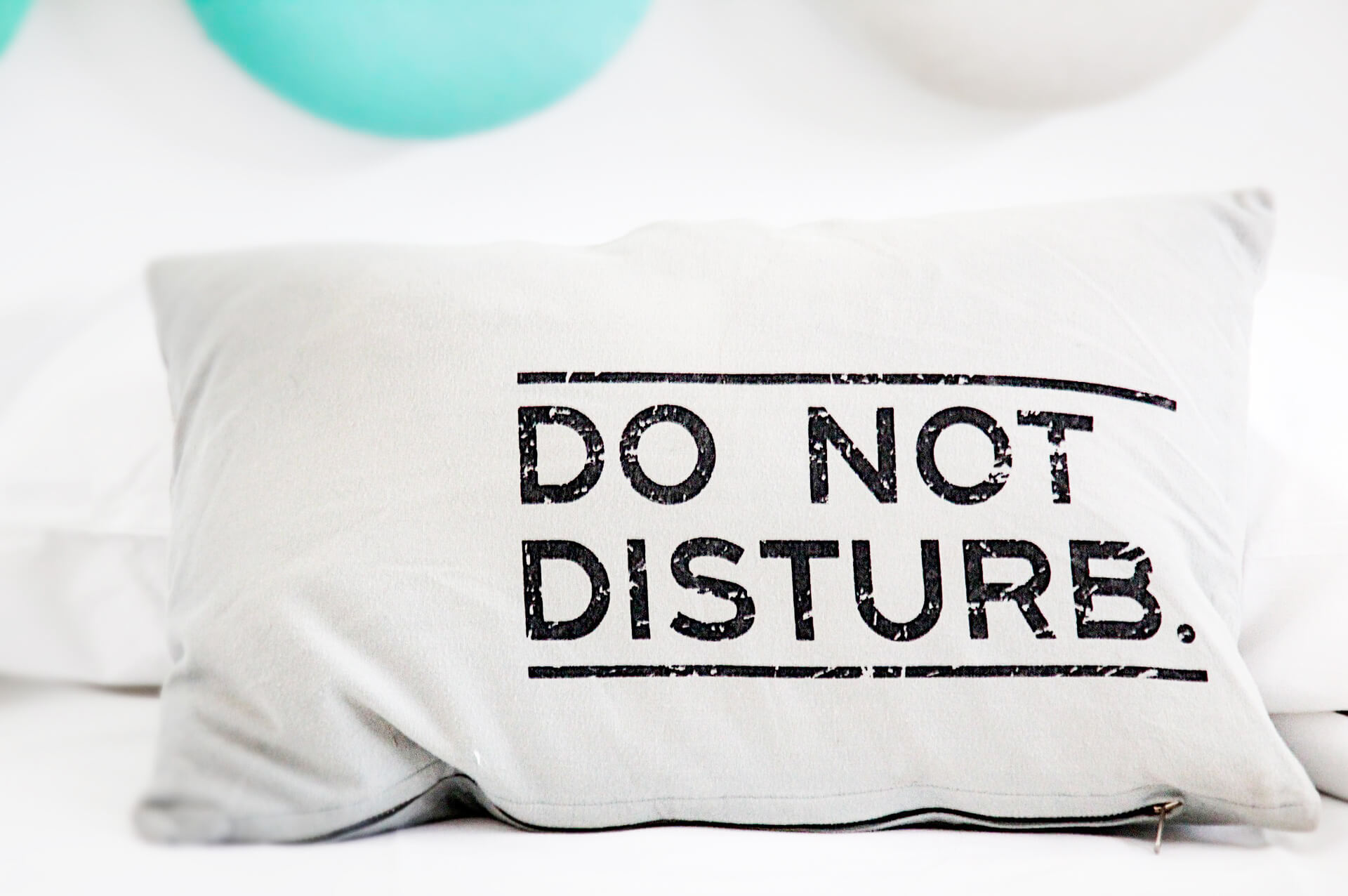

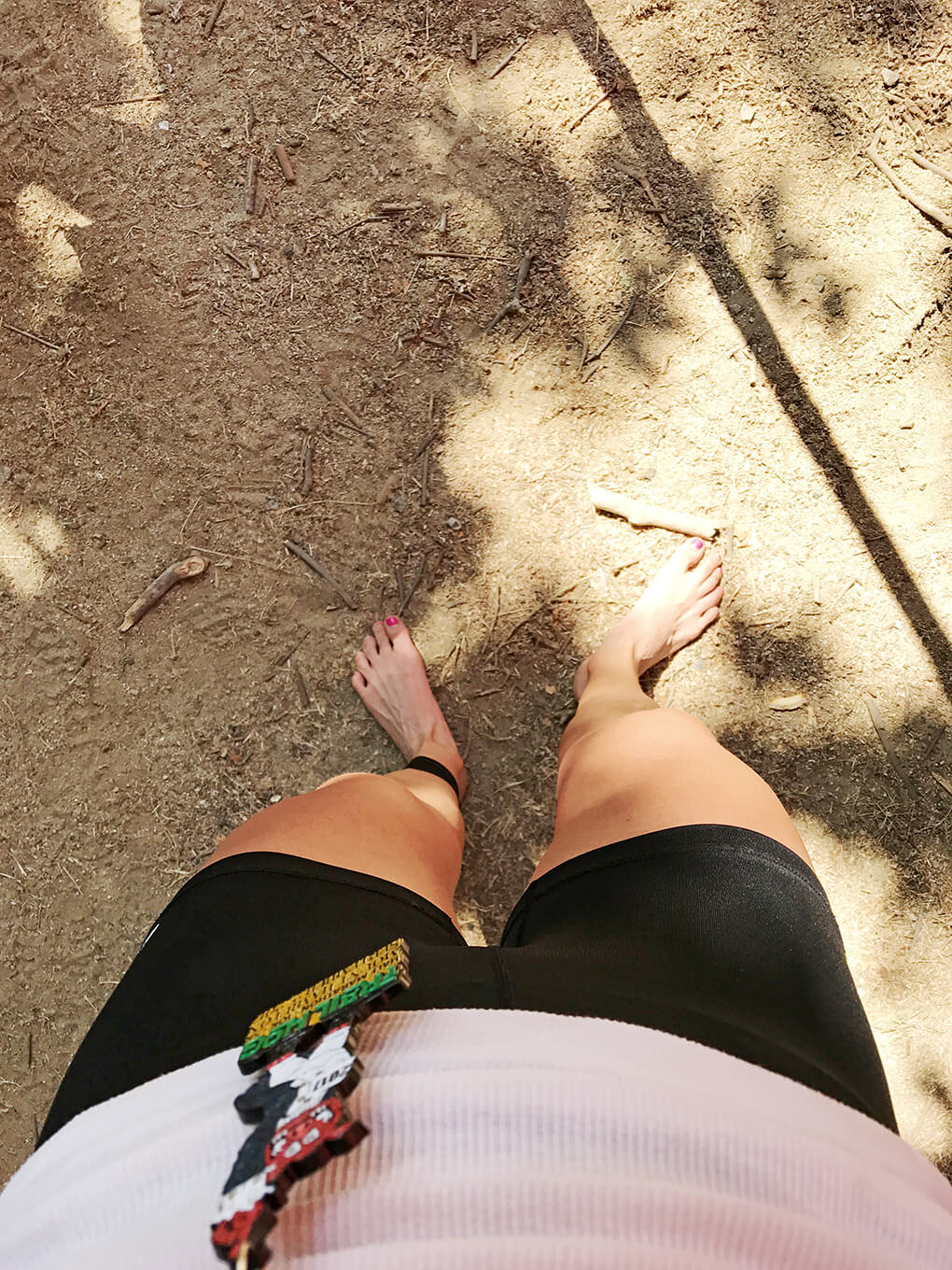
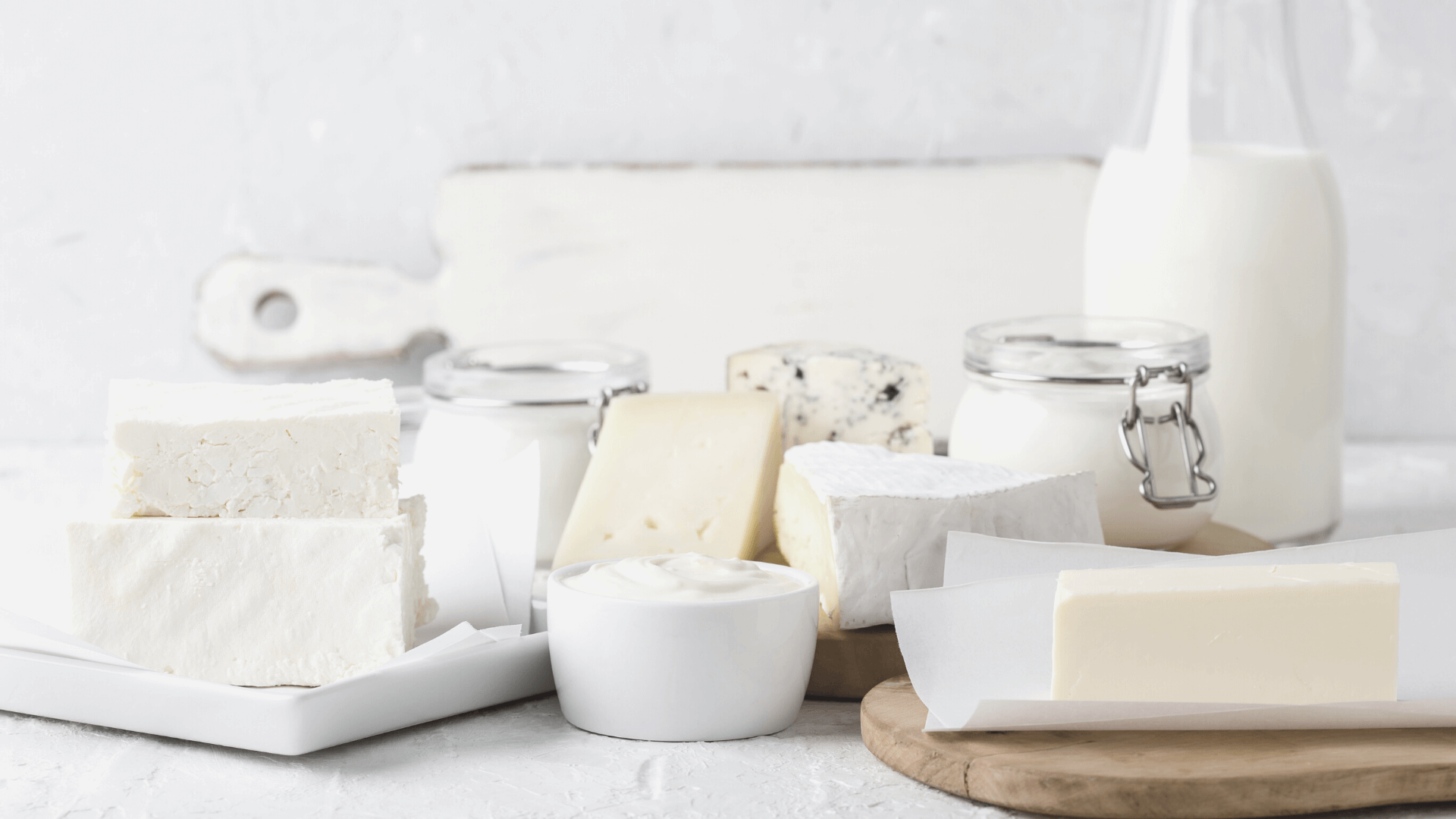
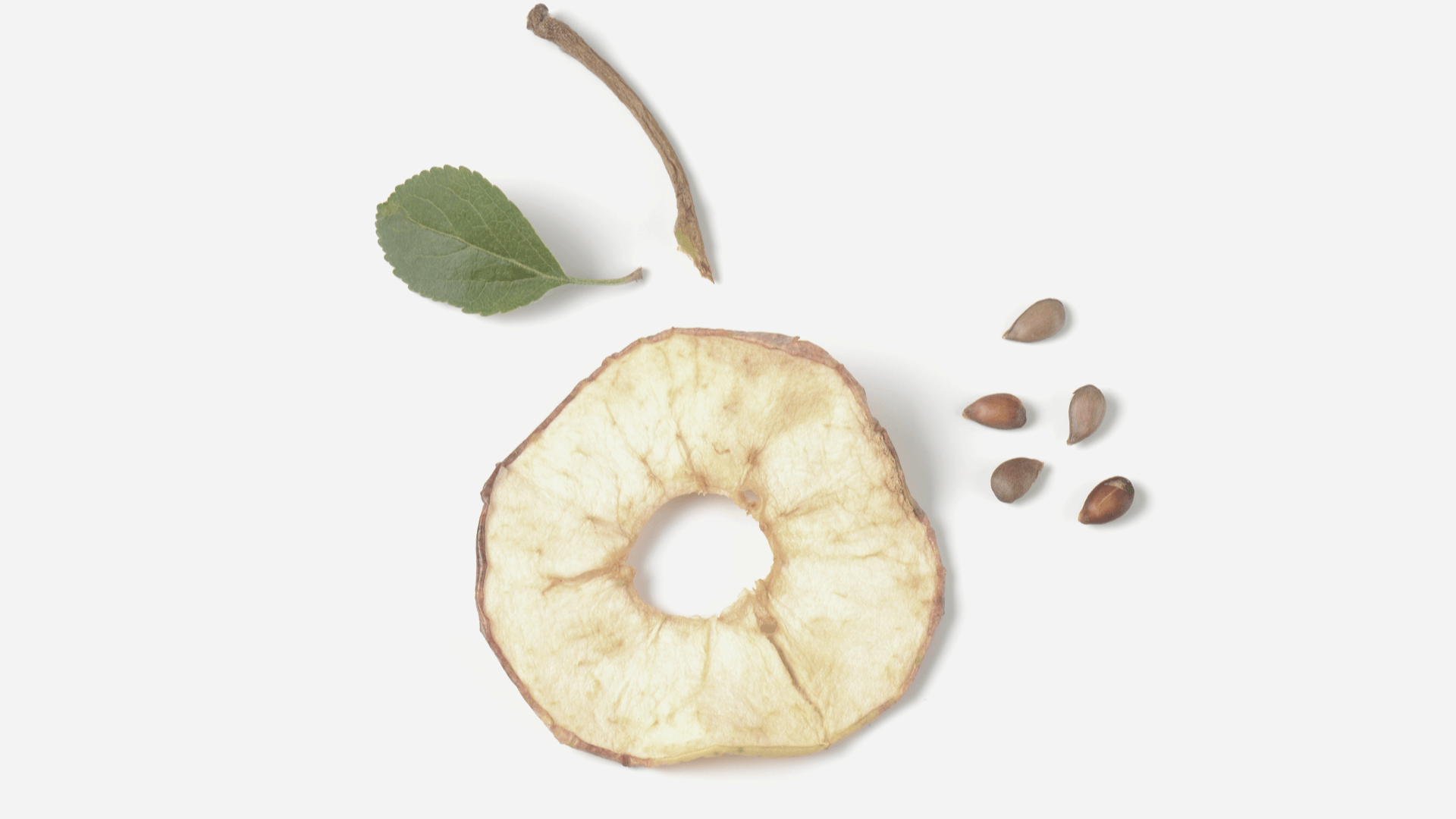
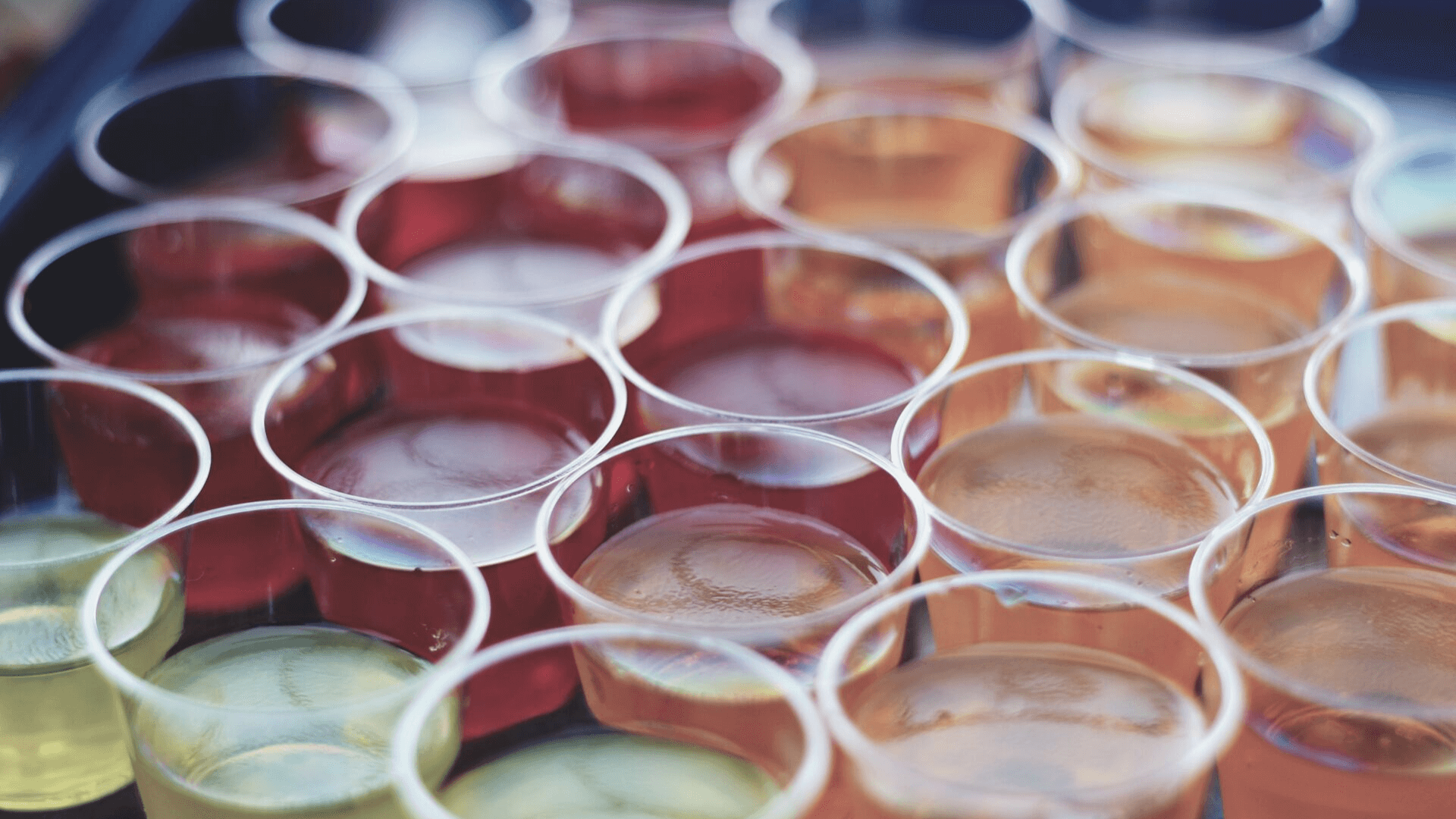
I have been highly considering going back on the FODMAP diet. I have only had certain food restrictions since my total colectomy with anastomosis surgery. I also had my gallbladder removed. They send you home with these hand outs and pretty much tell you over the weeks you can eat whatever. Well 3 years later and I am still learning. I notice that a lot of the FODMAP foods on the list bother me and with only having the small intestine left I really need to take special care of it.
Good luck!
Hi Sarah,
I have had chronic bloating for three years. It starts when I wake up and drink anything and by the time I go to bed I look 8 months pregnant! I’ve tried Everything. I’ve been vegan for two months now and have decided to follow Medical Medium, Anthony William’s protocol to heal my gut. Even healthy juices, raw salads and fruit cause bloating. I’ve been tested positive for SIBO and one round of antibiotics didn’t help at all. Any thoughts? Sometimes I get so sad and decide never to eat anything but it seems that even water causes bloating in me. I’m so tired of this and just can’t take it anymore.
Hi, Flora! I’m so sorry to hear all of this. When I ate a lot of fruits and vegetables I was always miserable, too, when my gut wasn’t in check. Do you eat a lot of high-FODMAP foods? You might check out my e-book, “The Gutsy Girl’s Bible.”
Hi Flora… Im the same… How are you going with it?
Any progress??
Flora – I have the same issue and am following anthony’s Protocols now too. Have you found anything that has worked? I feel the same like Ive tried everything too.
Hey Sarah,
Do you know which vegetables and fruits are monosaccharides? I definitely want to focus on those.
Do you also have a list of which vegetables and fruits are high in F O D A P S?
Thank you. Xx
Hi, Natalie! Thanks for stopping by. I don’t have a list of the vegetables and fruits that are monosaccharides or the high FODMAP fruits and veggies. So far, I’ve only written about monosaccharides – http://bit.ly/skhmono Perhaps I’ll add that information into the 3.0 version of The Gutsy Girl’s Bible. Thanks for the recommendation. Stay tuned for the 3.0 release!
Hello Sarah hoffman. As a sibo sufferer myself (Methane dominant) i 100% sympathize with all these people here asking you advice. By the way you are presenting your tense, (i.e present) it sounds like you are still trying to heal yourself. With gut issues, thats all we think about…. is the gut! I saw a comment saying a girl doesn’t know exactly what to eat and is reaching out to you. Your answer was “just really concentrate on your gut” lol sorry but anybody with common sense could give that advice. I assume the people are looking for a little bit more of a specific answer? If you don’t know then say simply that. I do wish you well and hope you heal yourself! To be honest, the only way I think we can really get well is to go deep, listen to your own body/intuition/. Browse for info, take it into account (not holding on to others words for dear life) and keep a journal of trials and errors, symptoms , food intake, and the Lords prayer on your fridge or whatever you believe is “source” im writing this in 2020 id be interested to know how youve come along now. Love, light and blessings x
Hi Lisa — yes, I have healed my gut. I have an entire website filled with “how to’s,” specifics, etc. In addition, I have produced many e-books and have also written an entire (published) book. I understand that everyone wants a specific, customized answer, but it’s simply not possible because every single person is so different. Hope that helps clarify. And again, YES….I am healed. I have been since 2018 🙂
Hi!
I just want to make a comment about die GAPS-diet to minimize confusion: You mention in your post that “GAPS also allows things like sweet potatoes (and other high-starch foods), beans and legumes, which I no longer believe help to fully starve gut bacteria”.
I am currently following the GAPS diet and high-starch foods like sweet potatoes are strongly forbidden on the GAPS diet, since they feed pathogens. Even beans are, though allowed to eat on later stages of the GAPS diet, not recommended since they are difficult to digest for a sensitive gut. Legumes, though, are GAPS legal.
I think my sibo methane has returned. I have lost too much weight unintentionally and muscle wasting is happening. How can I gain weight if I’m on the SCD diet? I’m not even sure what I can eat.
I’m so sorry to hear that. Just really focus on healing your gut. When that happens, weight will normalize.
Hello Sarah,I am a 61 yr old woman, mother of three, my husband died 11 yrs ago due to CLL. I have been miserable for over 2 yrs and spent unbelievable time and money tryng to find an answer. Finally did the breath test and it showed SIBO…. Hydrogen gases 87ppm’s
Methane gases 24ppm’s
Combined score 111
One week ago I ordered Atrantil and took for a 5 days 3x’s a day ( didnt notice anything
Also for the past 2 yrs I hv been extremely constipated, joints very sore, hair thinning, nails unhealthy, tingling/numbness in fingers and toes, extreme tummy swelling & pain
Vitamin D levels went off the chart high…had to come off D3 and levels went back down to normal
Found I hv MTHFR from mother and Father
Was put on estradiol cream combo and it cause heart racing, swelling all over…had to stop tht
Begin Xifaxan 550 MG yesterday and suppose to take 1 3x’s a day for 2 wks
Also found a SIBO diet and I’m implementing tht.
I read about the herbal route to killing off SIBO and debated on that however my dr wanted me to start with the Xifaxan.
Wondering if I also can do herbal suggestions along with the Xifaxan or wait until I complete it ?
Also, Sibo diet is very restricted but I’m pretty good with cooking and coming up with recipes tht I can make it for 2 wks doing ( well worth it if I can kill off this bad bacteria in my Small Intestines!!!
Question is what to do after 2 wks? do I wait to see how I feel go back to dr in 4wks after starting the meds? Start expanding my diet options if I notice I’m feeling better? Take another round of Xifaxan if I’m not better or If I’m better but not healed enough?
I also have heard of a nutritionist, Kate Scarlata….have you heard of her? She is speaking at a conference in Florida mid July on SIBO. I’m thinking about attending to learn more.
I would greatly appreciate your thoughts on any of this!
Lynda
Have you checked your thyroid TSH and antibodies?
Yes, I have had everything checked. My TSH is great!
Hi Morgan, I tested positive for SIBO. I have the methane type of overgrowth. I am treating it now. My naturopath has me on a restricted diet to starve the bacteria. The second month my doctor will introduce antimicrobials to kill off whatever is left. Then I will start a probiotoc after. What kind of foods do you eat?